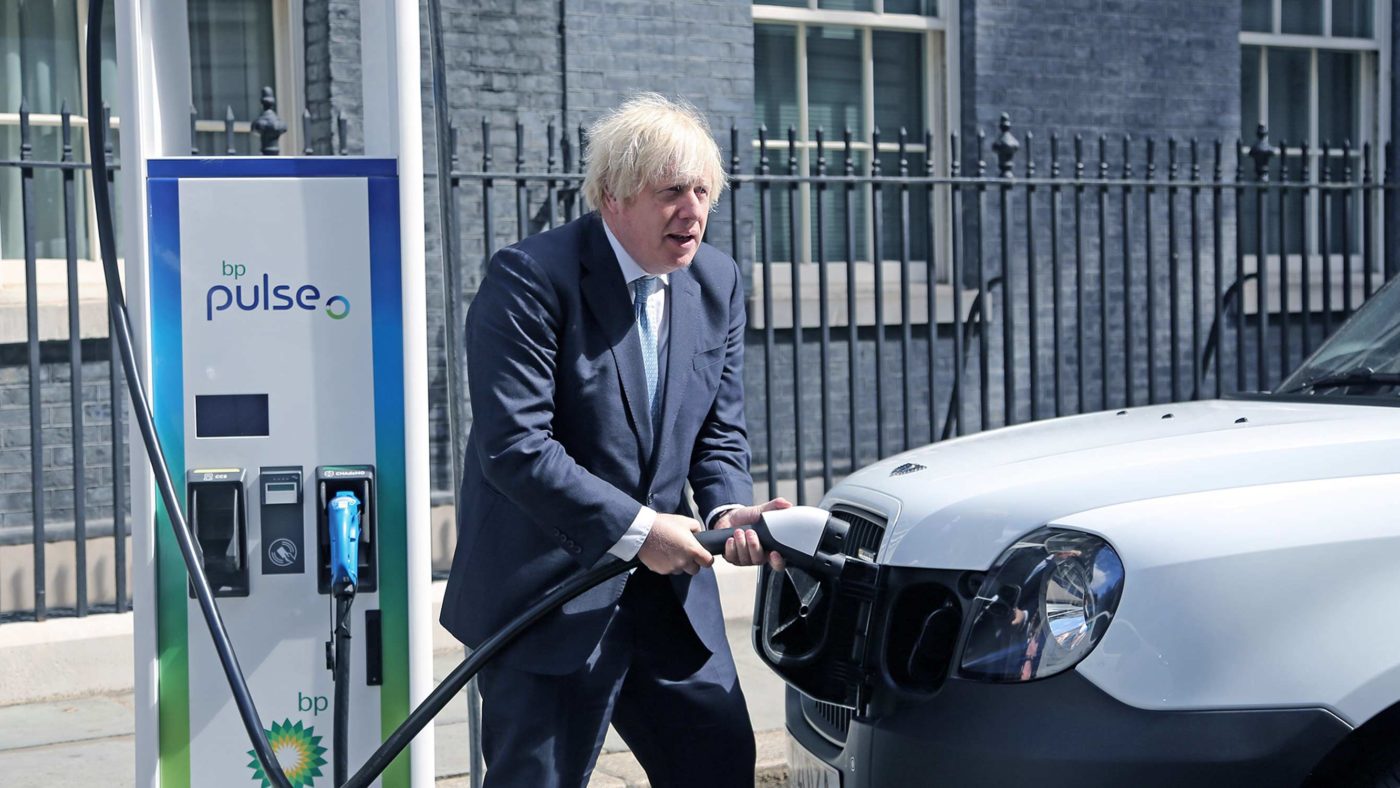“Boris Johnson is unusual: a centre right leader with a massive majority, who genuinely believes in the free market and protecting the environment.”
So writes one columnist of the prospect of this Government charting a free-market, centre-right course in green politics.
It is an enticing prospect. A major stumbling block to the widespread acceptance of environmental concerns has been the fact that the green movement was so obviously colonised by so-called ‘watermelons’ – green on the outside, red on the inside – for whom the climate was simply the latest justification for the ‘system change’ they’d want to see anyway.
Nonetheless, it is extremely difficult to get too excited. The odds of this or indeed any British government pursuing a radically different, pro-freedom approach to Net Zero are surely close to nil. That the big interventions so far have been bans on petrol cars and gas boilers – albeit both sufficiently remote that failing to hit them will be someone else’s fault – is probably a better indicator of the sort of policies we’ll see.
There are two reasons to be pessimistic about a pro-freedom Net Zero. First, because the sort of transformational infrastructure and technology projects that might really make the difference seem to be beyond the will, and perhaps the capability, of the British state. Second, and relatedly, because endlessly hitting the public with lifestyle ‘nudges’ is an easy way to fill the void where better policy should be.
For example, probably the single biggest thing the United Kingdom could do to slash our carbon footprint is a wholesale shift towards nuclear power. This would allow us to clean up our existing energy use and embrace new high-energy projects without guilt.
But our domestic capacity to build nuclear power stations is all but gone – Rolls Royce, proud maker of submarine engines, is about it. They’re making a push to develop a new generation of smaller reactors that could be rolled out across the country, but who really thinks a country which can’t build a railway or airport runway is going to pull off ‘local nuclear’?
Meanwhile if we wanted conventional nuclear technology, the options are either invest vast amounts in re-developing our sovereign capacity – which would be worthwhile, but so expensive – or invite the Chinese to build critical infrastructure.
Green activists sometimes attack nuclear power precisely because it holds out the prospect of clean energy without social transformation or an end to economic growth. You can read a bleak but engaging account of the potentially huge civilisational cost of our failing to shift to nuclear in J Storrs Hall’s Where’s My Flying Car (reviewed here)).
But with the UK and US have essentially lost the art of building nuclear power stations, France struggling, and Germany having unconscionably shuttered its own after Fukushima, they surely have little grounds to fear a sudden resurgence now, and these same state capacity issues will bedevil any push towards widespread adoption of alternatives.
Another factor limiting the extent to which Britain could tackle climate change with minimal interference with our individual lifestyles is that Net Zero is a fundamentally parochial approach to a problem to which the UK makes, today, a pretty marginal contribution. It focuses the state’s attention on our little transgressions, rather than where British cash might go farthest for the planet if invested overseas.
We should thus anticipate each generation of politicians to come up with a fresh wave of performative lifestyle adjustments. The great thing about these is that, unlike a major infrastructure programme, they can’t really be seen to fail. There may be serious question marks over the net benefit of bans on plastic bags, but nobody is pulling up the people who banked the headlines bringing them in.
It gets worse. James Frayne, the commentator I quoted at the start of this piece, points out that the cause of the climate creates a powerful moral narrative for justifying new taxes, even as meeting Net Zero imposes new costs on the state. Unfortunately the left in general, and the puritans in particular, have been much better at crafting a moral narrative around their policies than their opponents.
Having sold the intellectual pass on tobacco, it’s not hard to see green policies being used to justify hikes in sin taxes. Frayne casually lists alcohol as one of the ‘bad things’ that will have to be taxed to pay for ‘good things’ such as Net Zero. It cannot be too long until someone revives calls for a meat tax. The stern insistence that this or that is a nannying step too far is a well-established opening stage in the life-cycle of a public health proposal.
Even outwith environmental issues, our politicians seem always to prefer trying to reform the public than reforming public services – hence the constant badgering people to lighten their burden on ‘our NHS’. There is little reason to expect Net Zero to be any different.
None of this is to say that the green agenda is a bad one. Far from it. Done right, ‘ecological modernisation’ is a hugely exciting prospect. I’m as keen on a future of electric cars, maglevs running off a nuclear-powered grid, and aerostats as anybody. And given the complete failure to build an intellectually coherent and pro-active case against nanny-statism, it may well be that green is simply the flag of convenience for policies that were going to happen anyway.
But let’s not pretend that simply having a Conservative government in charge means we’re going to get a distinctly rightist approach to Net Zero or the second-order challenges it poses.
Click here to subscribe to our daily briefing – the best pieces from CapX and across the web.
CapX depends on the generosity of its readers. If you value what we do, please consider making a donation.


